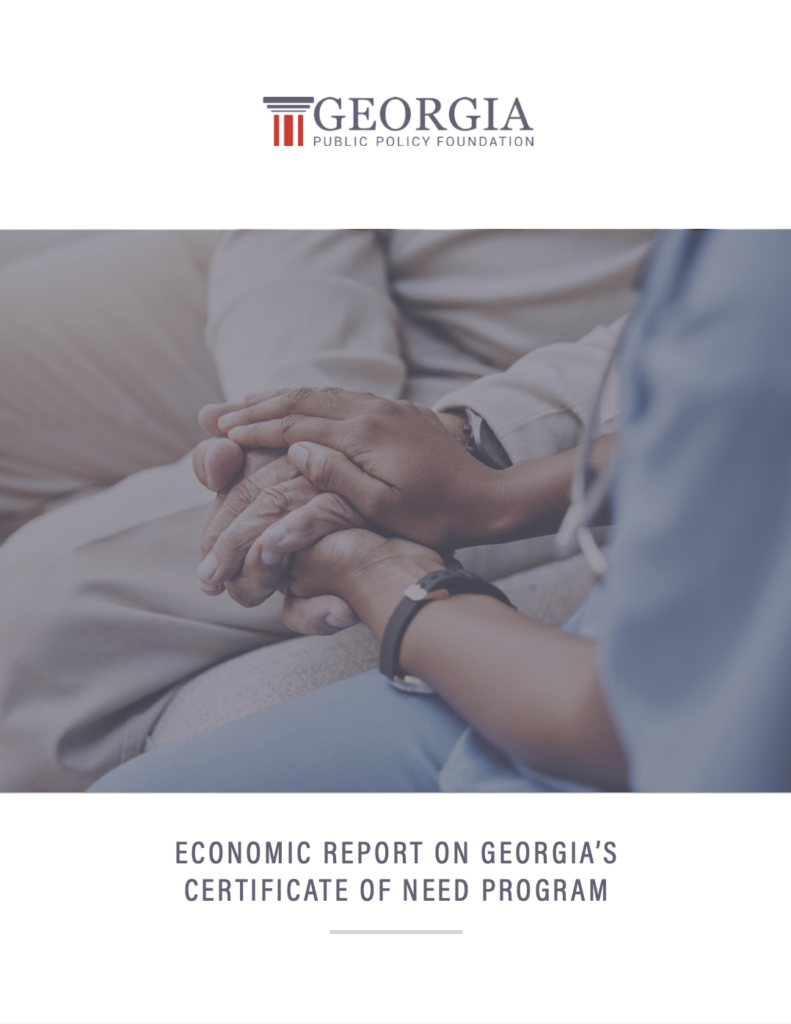CON in Georgia
Certificate of need (CON) laws — which allow the government to determine whether a new healthcare facility or service can open — remain one of the most contentious public policy debates. Despite their inception nearly fifty years ago, ongoing questions about cost, access and the role of community healthcare remain. In Georgia, a CON is required for almost 50 different types of healthcare, including hospitals, hospital beds, ambulatory surgery centers (ASCs), birth centers and imaging facilities.
Why does this matter? The majority of research shows that CON laws do not contain cost, do not offer adequate and equitable access and do not provide quality improvement.
A comprehensive report on Georgia’s Certificate of Need program finds:
- CON regulations are associated with a diminished availability of healthcare services. This includes fewer hospitals, fewer ambulatory surgery centers (ASCs), fewer rural hospitals, fewer rural ASCs and fewer home health agencies.
- CON regulations lead to worse outcomes for underserved populations, which includes those in rural or economically depressed areas.
- There is no correlation between rural hospital closures and reduced CON regulation. In fact, there are 30 percent fewer rural hospitals in states with CON regulations relative to non-CON states, and there are 13 percent fewer rural ASCs in CON states relative to non-CON states
Certificate of Need laws do not work as intended
Unfortunately, as health systems across the state consolidate and acquire independent physician practices, Georgia continues to maintain a regulatory system that exacerbates the problem by protecting these systems against most competition: certificate of need (CON) laws.
Georgia’s CON pits the powerful against rural healthcare needs
Lee County residents have a hospital nearby, Phoebe Putney Memorial, in the adjacent Dougherty County. State regulators approved another hospital, the proposed Lee County Medical Center (LCMC) as a competitor — but through the CON process, those same regulators recently took that approval back.
CON laws do not help underserved populations
The Foundation’s study analyzes 10 tests on how CON affects underserved populations, and found that eight of them were associated with diminished care for underserved populations and that two found neutral or insignificant effects. No tests associate CON with better outcomes for underserved populations.
